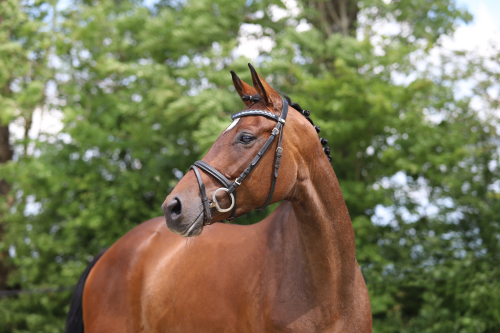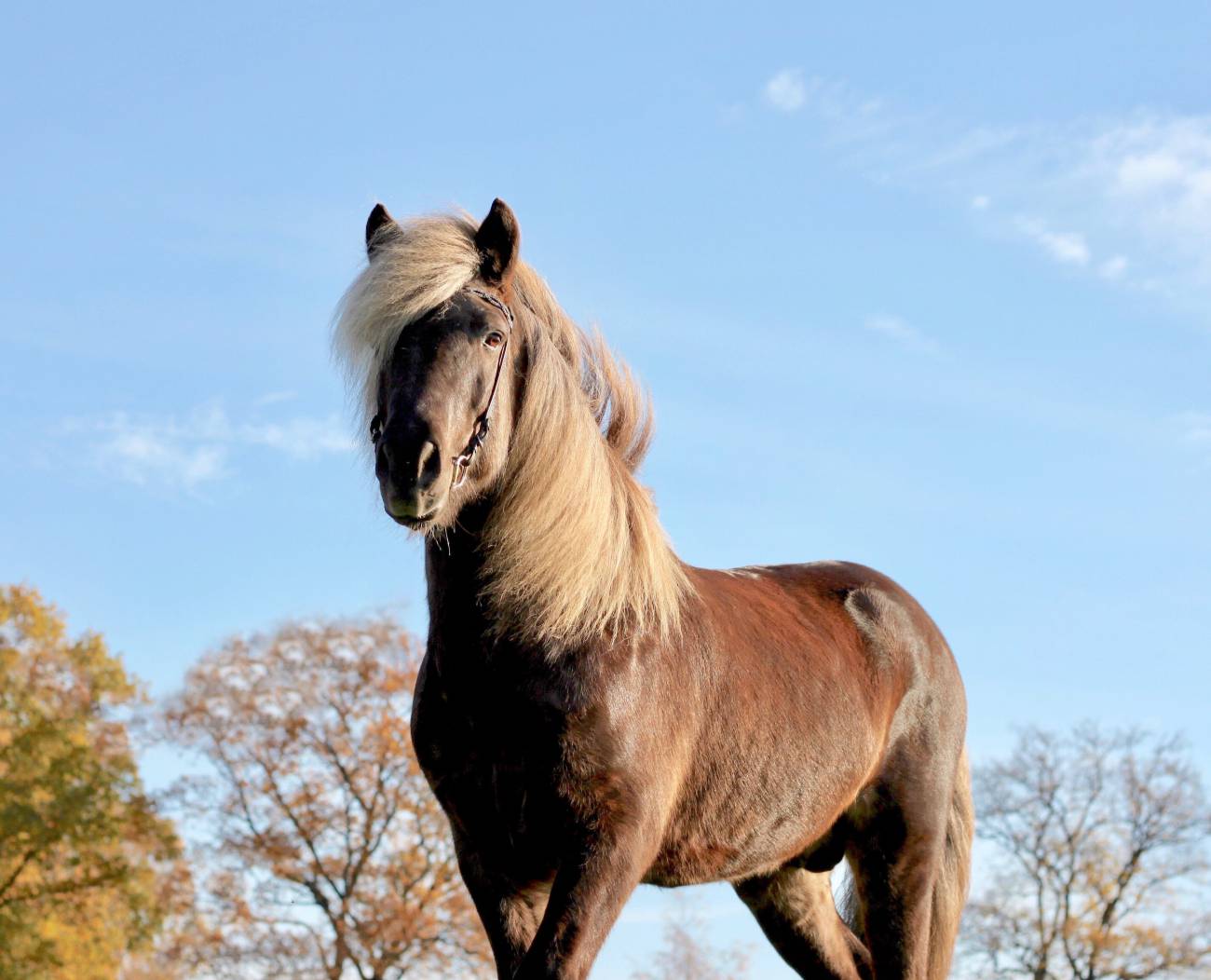Find the right horse breed from both
Icelandic horse vs. warmblood – what are the differences?
Icelandic horses and warmbloods are two very different horse breeds – and choosing between them depends largely on what you’re looking for and your riding experience. Here you’ll learn the most important differences and what to look out for.
1. Origin and Size
Icelandic horses, as their name suggests, originate from Iceland. They are relatively smaller, usually between 1.35 and 1.45 meters tall, but very robust and long-lived.
Warmbloods are larger horses, usually between 1.60 and 1.75 meters tall, bred in many European countries. They are versatile sport horses, for example, for dressage, show jumping, or eventing.
2. Character and Temperament
Icelandic horses are known for their calm, even-tempered nature. They are often very friendly, eager to learn, and well-suited for beginners.
Warmbloods can vary greatly: some are sensitive and athletic, others are more nervous or temperamental. This depends largely on the breeding line and training.
3. Gaits and Movements
The special feature of the Icelandic horse is the tölt – a very comfortable, four-beat gait that warmbloods do not have. Icelandic horses can also exhibit up to five gaits, including walk, trot, canter, tölt, and pace.
Warmbloods classically have three basic gaits: walk, trot, and canter. They excel with their large, ground-covering movements, which are highly valued in sports.
4. Uses
Icelandic horses are ideal for recreational riders, trail riders, and anyone who values comfort. Their robustness makes them particularly suitable for long tours, even cross-country.
Warmbloods are often the first choice for competitive sports, such as dressage arenas or show jumping. They are frequently used at competitions and in rider training.
5. Keeping and Care
Icelandic horses are very undemanding, require little feed, and tolerate harsh climates well. They are easy to keep.
Warmbloods are often a bit more demanding, often requiring higher-quality feed and more exercise, especially when used for competitive riding.
Conclusion
The choice between an Icelandic horse and a warmblood depends on your goals, riding style, and preferences. If you’re looking for a robust, friendly horse with a distinctive gait, an Icelandic horse is a fantastic choice. If you’re looking for a sport horse with great movement for competitions, a warmblood is probably a better fit.
At UNDRA, you’ll find a great selection of Icelandic horses for every need—from easygoing leisure companions to sporty tölt pros. Take a look!

A land of fire and ice, with more sheep than inhabitants, characterized by a unique nature! This is just a brief description of such a diverse country. While a volcano may erupt on one side of the country, you can hike a glacier, admire the Northern Lights, or take a bath in a hot spring on the other side of the country - at the same time.
This not only speaks for diversity, but also for spontaneity, which is also reflected in the changeable weather in Iceland. A popular Icelandic saying is "If you do not like the current weather, just wait for five minutes".
In contrast to this inconsistency, one thing is constant and that is the enthusiasm for Icelandic horses! The Vikings brought horses to the island in the 9th century.
To find out more about Iceland, you can find travelogues, reports, or interesting facts here in the UNDRA Journal!
